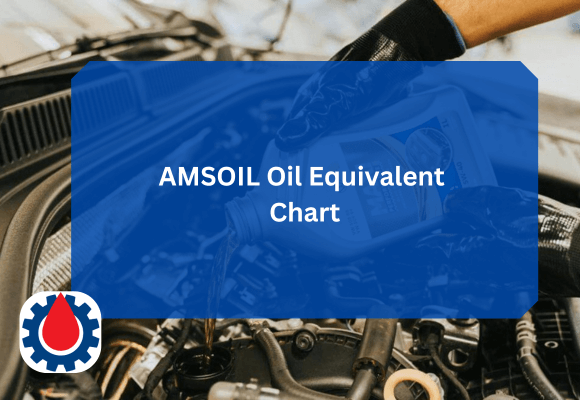When it comes to car maintenance, one question that often sparks debate among drivers and mechanics alike is: Can you mix engine oil brands? It’s a valid concern, especially if you’re in a pinch or topping off between oil changes. Engine oil plays a critical role in lubricating, cooling, and protecting your engine.
So, mixing different brands might sound risky. But is it truly harmful, or just misunderstood? Let’s dig deep into this automotive dilemma.
Can You Mix Engine Oil Brands
Yes, you can mix engine oil brands, especially if they are of the same viscosity and type (e.g., 5W-30 synthetic). Most modern oils meet industry standards and are generally compatible. However, mixing is not ideal because different brands use unique additive packages that may reduce overall oil performance.
It’s best used as a temporary solution, always plan a full oil change with a single, recommended brand to ensure optimal engine protection.
Understanding Engine Oil Basics
Before diving into mixing brands, it’s essential to understand what engine oil is and what it does. Engine oil is not just a slick substance that keeps your engine parts moving smoothly, it’s a scientifically formulated liquid designed to:
- Lubricate engine components to minimize friction and wear.
- Cool the engine by dissipating heat.
- Clean internal parts by trapping dirt and debris.
- Protect against rust and corrosion.
- Seal gaps between piston rings and cylinder walls.
There are various types of engine oil, including conventional, synthetic, and synthetic blends. Each type contains base oils and additives that enhance performance under different conditions.
Related Can You Mix Different Weights of Oil(Hack or a Disaster)
Why People Mix Oil Brands
There are several scenarios where someone might consider mixing engine oil brands:
- You’re low on oil and the exact brand isn’t available.
- You’ve got leftover oil from a previous oil change.
- You’ve recently switched vehicles and have oil from different manufacturers.
- You’re topping up between oil changes rather than doing a full oil replacement.
In these situations, mixing can seem like a practical, cost-effective choice. But what does it mean for your engine’s health?
The Chemistry Behind Engine Oils
All engine oils, regardless of brand, must meet certain industry standards set by organizations like the American Petroleum Institute (API) and Society of Automotive Engineers (SAE).
These standards ensure compatibility and baseline performance. For example, a 5W-30 synthetic oil from Brand A and another from Brand B will generally meet the same viscosity and performance criteria.
However, not all oils are identical beneath the surface. Each manufacturer uses proprietary additive packages, chemical compounds designed to enhance properties like detergency, anti-wear, and oxidation resistance. These additives can react unpredictably when mixed.
What Happens When You Mix Oil Brands?
Let’s get straight to the answer: Yes, you can mix engine oil brands—technically. But that doesn’t mean it’s always a good idea.
Here’s what can happen:
1. Neutral Interaction
In many cases, mixing two oils of the same type and viscosity (e.g., 5W-30 synthetic) from different brands will not cause immediate harm. The additives may not interfere with each other significantly, and your engine will continue to run smoothly.
2. Dilution of Performance
You may unintentionally dilute high-performance oils when you mix them with a lower-tier product. This can reduce the effectiveness of additives, especially if one oil was formulated for high-stress or high-temperature conditions.
3. Chemical Incompatibility
On rare occasions, incompatible additives can cause sludge formation or reduce lubrication quality. This is especially risky if you’re mixing conventional and synthetic oils or different viscosity grades.
Related Can I Use Engine Restorer and Triax Oil Additive Together
Best Practices If You Must Mix
If you’re in a situation where mixing is unavoidable, follow these tips to minimize potential risks:
- Match the viscosity: Ensure both oils are the same SAE grade (e.g., 10W-40).
- Stick to the same type: Mix synthetic with synthetic, conventional with conventional.
- Avoid long-term use: Mixing should be a temporary solution, not standard practice.
- Top off, don’t fill: Use mixing only to top off, not replace all the oil in your engine.
- Change oil soon: Plan for a full oil change with one consistent brand and type soon after.
Final words
While it’s not catastrophic to mix engine oil brands occasionally, consistency is key for long-term engine health. Using the same brand and type of oil ensures that your engine gets the full benefit of a carefully engineered formula. It helps maintain optimal lubrication, keeps internal parts cleaner, and provides better protection under stress.
So, while you can mix oil brands, it’s best to do so only when necessary. When it’s time for your next oil change, stick with one trusted product that meets your car manufacturer’s recommendations. That way, your engine gets the consistent care it needs to stay strong, efficient, and reliable.




